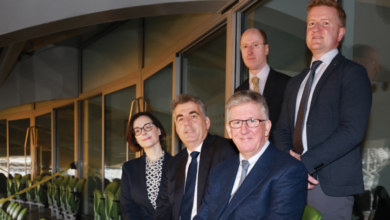Transforming healthcare: Leveraging staff experience for success

BearingPoint conducted a study of healthcare worker experience revealing key factors of what attracts them to specific hospitals and leads to improved job satisfaction, writes Sohini De, Healthcare Lead, BearingPoint Ireland.
Experiences of nursing staff and non-consultant hospital doctors from Ireland and five other European countries (Germany, France, Norway, UK, and Sweden) were captured through the BearingPoint survey, with additional qualitative insights drawn from interviews with HR and medical manpower leaders in leading hospitals. Those surveyed were working in acute hospitals, of various sizes.
The wider study identified many common challenges experienced by healthcare workers across Europe, and also highlighted several regional variations and areas of strength. In particular, there were a number of areas in which Irish respondents indicated a more positive experience than their European peers including perception of management, information flow and predictability of working hours. It also revealed several insights that can inform future planning and people strategies within the Irish acute hospital setting.
What the study tells us
| “We need to make our processes more digital for inventory, logistics and patient management”. |
In the case of Irish respondents, there was a clear correlation between workplace autonomy, innovation and opportunities for continuous professional development.
1. Easing the administrative burden through technology adoption
Respondents emphasised the need for more investment in technology, as they recognise the potential for these tools to reduce administrative tasks. Reduction in administration time would allow healthcare professionals to spend more time with patients, improving both the work environment and health outcomes.
2. The relationship between workplace wellbeing and autonomy
A significant 94 per cent reported that more effective tools for work scheduling, time management, and leave management would positively impact job satisfaction levels. Some respondents who already use eRostering solutions mentioned their benefits. Respondents noted that scheduling apps and tools for booking time off are providing staff with greater autonomy, which is contributing to a positive work experience.
3. Ongoing investment in learning and development
Ireland benefits from strong partnerships between universities and hospitals, making it easier to embed a culture of continuous learning and innovation. Respondents also recognise the importance of soft skill training with 90 per cent indicating that training programmes on management and team development contribute to an improvement in overall job satisfaction.
Respondents highlighted the positive effects of training and mentorship programmes supporting continuous improvement. They also indicated how access to training through digital technologies helped staff fulfil their training needs.
Key takeaways for Ireland based on the study
| “Mentorship programs have been very helpful in managing administrative tasks as well as learning how to cope with professional life” |
| “We have worked to reduce working hours, bring more autonomy into the shift allocation system and allow people to choose the weekend shifts they want” |
1. Prioritising patient and staff experience: Hospitals should prioritise enhancing staff and patient experiences by improving people and process management, fostering a positive culture, and providing a platform for employees to voice their opinions. Successful hospitals have implemented “shared governance” where frontline staff can raise issues and create solutions. This includes (a) feedback mechanisms for top management, (b) encouraging staff-led transformation projects, and (c) delegating decision-making power to the frontline, resulting in improved workflow efficiency and job satisfaction.
2. Role of digitisation and data: Capacity must be increased to meet the rising demands on the acute healthcare sector. Direct patient care can be prioritised by automating administrative processes, improving bed management and capacity planning with Internet of Things (IoT), and augmenting decision-making to clinical practice with Artificial Intelligence (AI). In addition, virtual wards, remote medical care and telemedicine can be used to redirect demand to alternative care delivery pathways which can often provide a more positive patient outcome. Data insights can support early identification of risks at a patient level, and it also helps inform healthcare providers and governmental agencies in planning and policy formulation.
| “We have recently had a number of trainings that have helped us in developing clearer work distribution, clearer communication and patient pathways” |
Hospitals should take a methodical approach to identify priority technology solutions that fit their context and maturity level, working with the wider eco system to keep current on developments and applications. Including employees in the selection, prioritisation, and testing of new use cases is crucial for successful adoption. This ensures that the chosen technology aligns with their needs and initiates the change management process, resulting in an improved employee experience.
3. Learning, innovation and R&D: Collaboration with the wider ecosystem can enable healthcare providers to become centres of innovation and multi-discipline collaboration, enhancing team cohesion. Participation in innovation processes allows healthcare staff to address problems effectively, potentially improving job satisfaction. For hospitals, it aids in developing collective intelligence by considering staff input, supporting initiatives from the field, and enhancing the leadership skills of frontline managers who convey the needs expressed by frontline teams into actionable decisions.
The findings from this study both highlight the positive impact of changes being implemented within the Irish healthcare systems and present opportunities to learn from their European peers to support the continuous improvement of patient and employee experience.
Quotes are from survey respondents.
Sohini De, Healthcare Lead, BearingPoint Ireland







